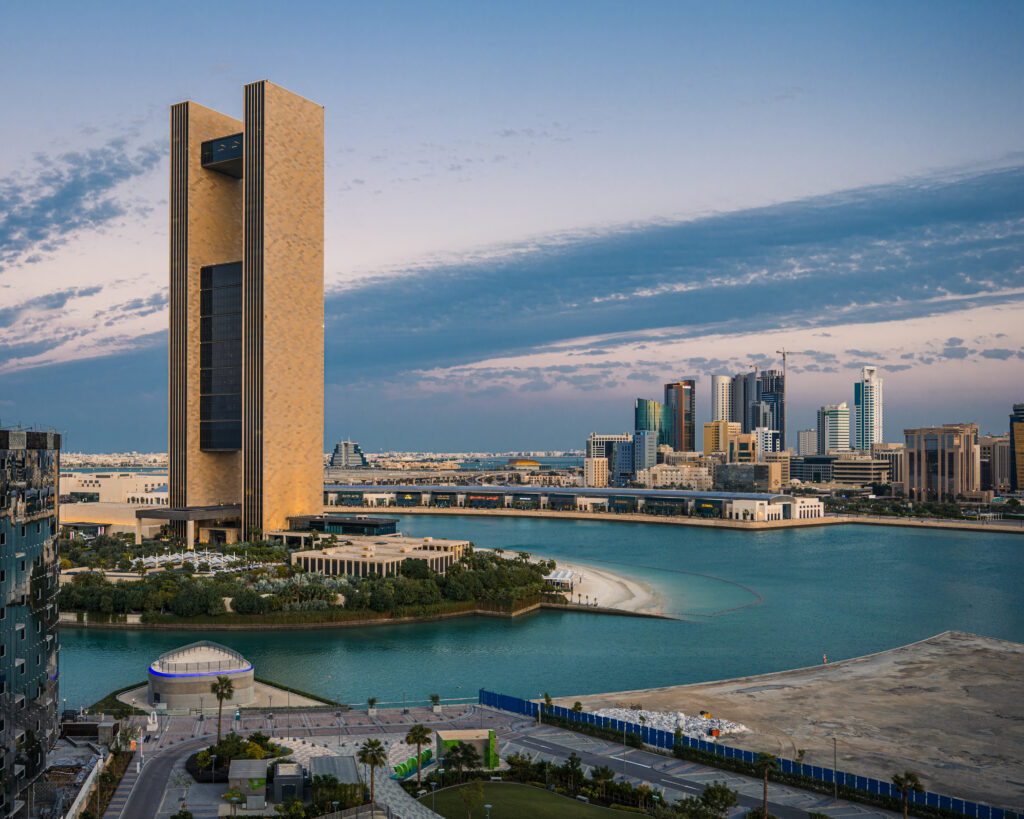Hochstein, the primary mediator of the agreement, was speaking at an event on Wednesday organized by the US institute of Peace in Washington D.C. and attended by Arab News.
Israel and Lebanon signed the agreement on Oct. 27, 2022. It aimed to end a dispute over maritime boundaries between the two countries in the eastern Mediterranean region where oil and natural gas have been discovered in recent years.
“The agreement at its core is a boundary agreement, not an energy agreement,” said Hochstein, adding that it created legally and internationally recognized maritime borders between the two countries.
Lebanon and Israel are officially still in a state of war ever since the latter’s establishment in 1948.
Hochstein said the agreement gives Lebanon the rights to the Qana gas field, which has not yet been explored.
However, he added that Israel has a “fair right to some of the gas” because parts of the field extend beyond the agreed-upon boundary.
Israel agreed in the deal that a consortium led by French energy company Total will buy its share of discovered gas.
Hochstein described the negotiations as complex because both countries have no formal ties and do not deal with each other directly, and therefore had to sign separate agreements with the US and with the consortium.
Therefore, he said, “the maritime agreement isn’t just one agreement, it’s multiple separate agreements.”
He added that what helped make it possible after years of failed attempts were new political and economic conditions on the ground in both countries, especially Lebanon.
Hochstein said Lebanon suffers from a severe economic crisis, lacks proper energy infrastructure and has very limited electricity output, which created public pressure on the ruling elite.
He added that Israel has ample supplies of natural gas it extracts from other fields, especially the neighboring Karish field in the Mediterranean, which provides its economy with cheap electricity. What motivated Israel to sign the deal is its political and security considerations, he said.
Hochstein highlighted some of the positive steps Lebanon has taken regarding some of the economic reforms recommended by the International Monetary Fund and the World Bank, which would help attract foreign investors in the aftermath of the maritime agreement with Israel.
He said one of the benefits of the deal is that it creates an economic and political environment for international companies such as Total to invest in Lebanon.
As an example, he said when one member of the international consortium that is supposed to explore gas in the Qana field left, Qatar quickly joined the consortium in its place.
Hochstein added that the US-sponsored regional agreement to supply Lebanon with gas and electricity from Egypt and Jordan via Syria is ready, and Lebanon can benefit from it immediately once its domestic bureaucratic and political hurdles are removed.
“It could flow into Lebanon tomorrow,” he said, adding that the country needs to think more about establishing a renewable energy infrastructure that would give it energy security and more electricity.
He said the government should mandate every new building to have some measure of rooftop solar energy.






















